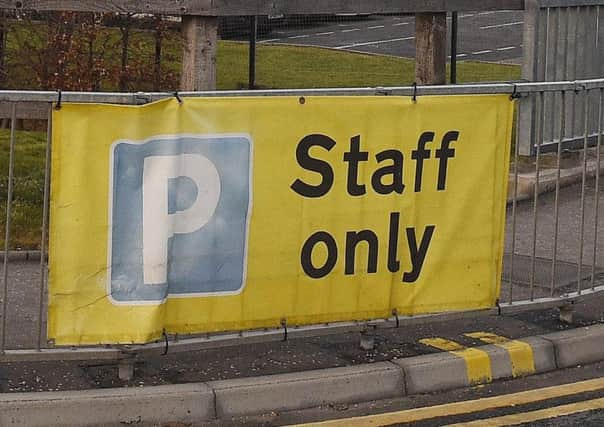Workplace parking levy is an unfair, regressive tax – leader comment


Climate change, air pollution and traffic congestion are all problems of varying degrees of seriousness. Global warming will ultimately pose an existential threat to humanity if action is not taken, air pollution cuts short thousands of lives a year and traffic jams are a drain on the economy as well as a source of considerable frustration.
So measures designed to address all three would normally be warmly welcomed by the Scotsman and many others. However, the workplace parking levy has a number of significant problems as was pointed out by Labour, Liberal Democrat and Conservative MSPs as the legislation was passed by the SNP and Scottish Greens.
Advertisement
Hide AdAdvertisement
Hide AdPerhaps the most surprising element is that electric cars are not specifically excluded from the levy, which local authorities now have the power to impose if they wish.
The Scottish Government has committed to phasing out new petrol and diesel cars by 2032 and an exemption would have been a way of encouraging consumers to switch.
Councils can choose to do this if they wish, but the fact the Government decided not to do so will add to suspicions that this is more about raising tax than cutting emissions or improving air quality.
Cash-strapped councils
When increasing taxation, it is important to consider who will end up paying and whether they can afford it.
This tax will hit rich and poor alike. The wealthiest commuters will barely notice the cost; the hardest hit will be relatively poor people who may have been priced out of the housing market in city centres and live in neighbouring towns with poor public transport links.
As Tory MSP Murdo Fraser pointed out, this “regressive” tax will be a “substantial hit” to the finances of those on low incomes. Labour’s Neil Bibby made the same argument.
Over decades, we have created a society in which too many people are reliant on private cars; some 20th-century towns seem designed with no other form of transport in mind.
More recently councils have been struggling as their budgets have been cut to the bone, so a potential new source of revenue will be hard to resist.
Advertisement
Hide AdAdvertisement
Hide AdBut if they do choose to use this power, they must first consider how people on low budgets – some of whom may live outside the council’s area – will actually get to work.
And they should realise an unfair, regressive tax will not build support for the fight against climate change.